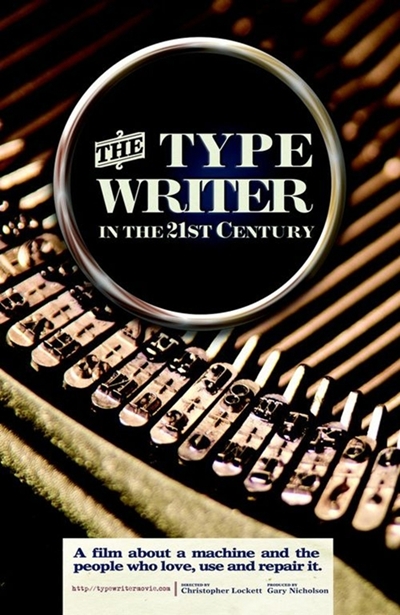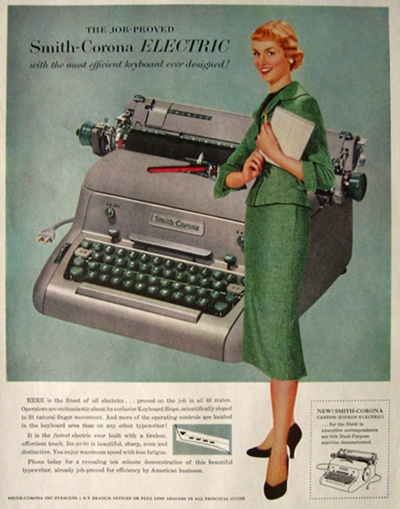 As a retro-obsessed scribe, I often dream of steno pads, fountain pens and carbon copies. (Think “Mad Men” or Tippi Hedren’s office job in “Marnie.”) And of course I recall the marvelous clack, smack and ding of a vintage Smith Corona.
As a retro-obsessed scribe, I often dream of steno pads, fountain pens and carbon copies. (Think “Mad Men” or Tippi Hedren’s office job in “Marnie.”) And of course I recall the marvelous clack, smack and ding of a vintage Smith Corona.
I am not alone in my nostalgia. Turns out, the good old-fashioned typewriter is experiencing a revival of popularity with users young and old. Just ask director Christopher Lockett and producer Gary Nicholson. Their documentary, “The Typewriter in the 21st Century,” opens in Los Angeles on Friday.
Inspired by a 2010 Wired magazine story called “Meet The Last Generation of Typewriter Repairman,” Lockett and Nicholson interviewed more than 30 typewriter devotees – writers, collectors, journalists, teachers, students, artists, inventors and repair men and women.
Among these old-school loyalists are non-fiction authors Robert Caro and David McCullough, who between them claim four Pulitzer Prizes, three National Book Awards and a Presidential Medal of Freedom. For Caro and McCullough (he has been writing on the same machine since 1965), the thoughtfulness and precision that a typewriter demands is integral to the writing and editing process.
And perhaps the creative process. It stands to reason that typewriters might have influenced the way literary heavyweights wrote, back in the day when a wordsmith might form a visceral connection with keys, carriage and ribbon. The film shows us machines once owned by the likes of Ernest Hemingway, Jack Kerouac, Tennessee Williams, John Steinbeck, Jack London, Sylvia Plath, George Bernard Shaw, John Updike, Ray Bradbury and Ernie Pyle. Certainly, all the great film noir novelists and screenwriters composed on typewriters.
The filmmakers also explore the history (typewriters with a QWERTY keyboard date from 1873) and societal impact of these trusty devices. It’s easy to forget in our contemporary plugged-in cocoons, but typewriters changed the landscape of the business world. “The typewriter is the one piece of office technology that allowed women to move from the home to the professional work force,” says author Lynn Peril.
Whether drafting a work of art or just embracing a low-tech lifestyle, the connection to these machine endures. Singer-songwriter Marian Call uses a typewriter as a percussion instrument. “Nothing else makes that sound,” she says. “And it brings with it a flood of memories.”
Soldiers Peter Meijer and Alan Beck sent typewritten letters from the front lines in Afghanistan and Iraq. As Meijer put it: “One woman I sent letters to, when I visited her on leave, carried those letters around with her in her purse. You don’t get that with email.”
“The Typewriter in the 21st Century” runs May 10-16 at the Downtown Independent, 251 S. Main St., 213-617-1033. On May 10, the filmmakers will hold a Q&A between the 8 p.m. and 10 p.m. screenings.











From FNB readers